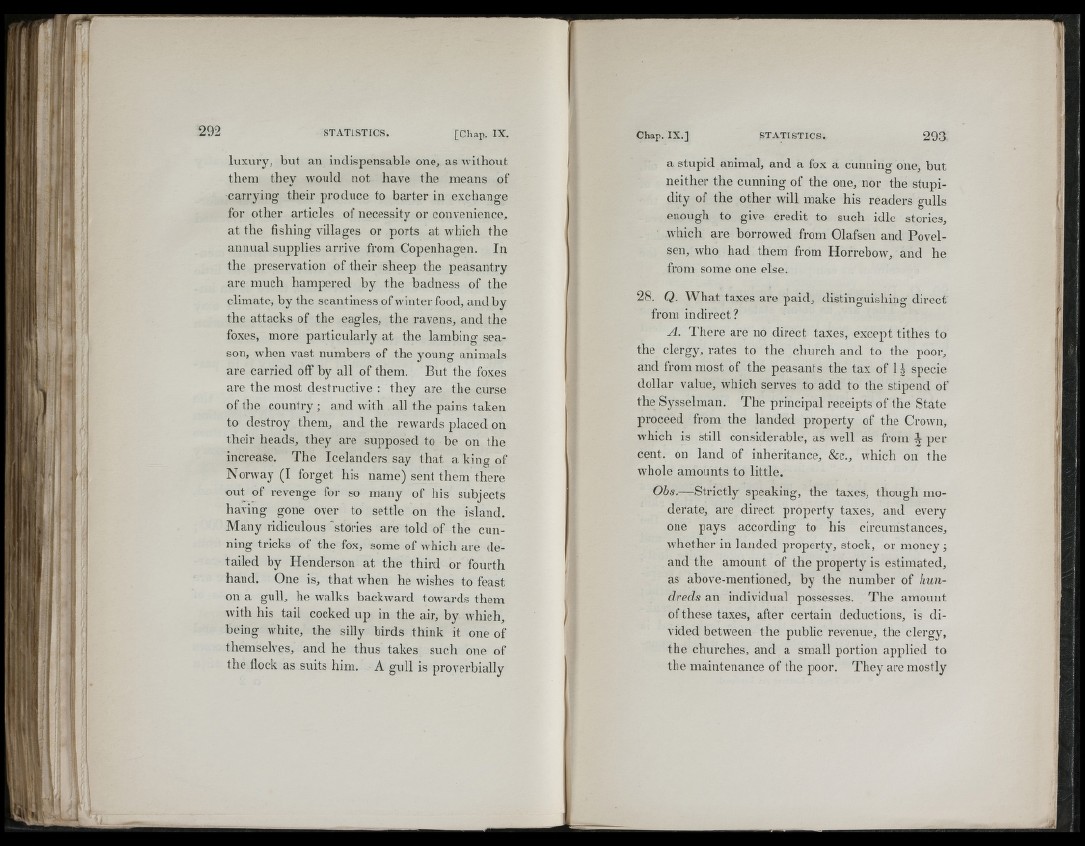
li: ,i. I
IS
luxury, but an indispensable one, as ivithont
them they would not have the means of
carrying their produce to barter in exchange
for other articles of necessity or convenience,
at the fishing villages or ports at which the
annual supplies arrive from Copenhagen. In
the preservation of their sheep the peasantry
are much hampered by the badness of the
climate, by the scantiness of winter food, and by
the attacks of the eagles, the ravens, and the
foxes, more particularly at the lambing season,
when vast numbers of the young animals
are carried off by all of them. Bnt the foxes
are the most destructive : they are the curse
of the country ; and with all the pains taken
to destroy them, and the rewards placed on
their heads, they are supposed to be on the
increase. The Icelanders say that a king of
Norway (I forget his name) sent them there
out of revenge for so many of his subjects
having gone over to settle on the island.
Many ridiculous "stories are told of the cunning
tricks of the fox, some of which are detailed
by Henderson at the third or fourth
hand. One is, that when he wishes to feast
on a gull, he walks backward towards them
with his tail cocked np in the air, by which,
being white, the silly birds think it one of
themselves, and he thus takes such one of
the flock as suits him. A gull is proverbially
a stupid animal, and a fox a cunning one, but
neither the cunning of the one, nor the stupidity
of the other will make his readers gulls
enough to give credit to such idle stories,
which are borrowed from Olafsen and Povelsen,
who had them from Horrebow, and he
from some one else.
28. Q. What taxes are paid, distinguishing direct
from indirect ?
A. There are no direct taxes, except tithes to
the clergy, rates to the church and to the poor,
and from most of the peasants the tax of U specie
dollar value, which serves to add to the stipend of
the Sysselman. The principal receipts of the State
proceed from the landed property of the Crown,
which is still considerable, as well as from ^ per
cent, on land of inheritance, &c., which on the
whole amounts to little.
Obs.—Strictly speaking, the taxes, though moderate,
are direct property taxes, and every
one pays according to his circumstances,
whether in landed property, stock, or money;
and the amount of the property is estimated,
as above-mentioned, by the number of hundreds
an individual possesses. The amount
of these taxes, after certain deductions, is divided
between the public revenue, the clergy,
the churches, and a small portion applied to
the maintenance of the poor. They are mostly
«i;